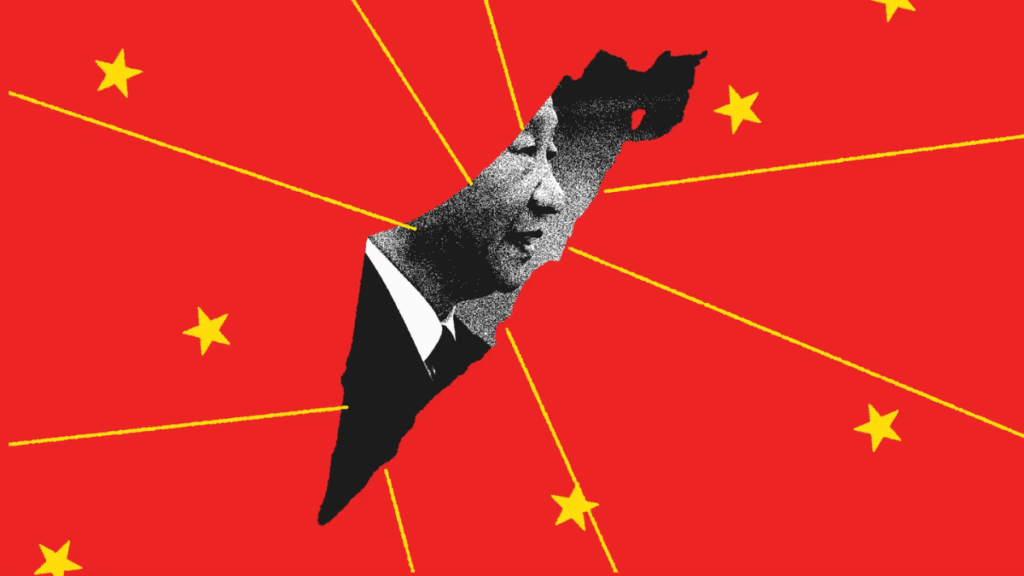In today’s interconnected world, there is no denying the rising influence of China. With its rich history, vibrant culture, and booming economy, China has emerged as a global power that cannot be ignored. From its ancient civilization to its modern megacities, this fascinating nation continues to captivate the imagination of people around the globe.
But with great power comes great complexity. As businesses seek to tap into the vast opportunities offered by China’s rise, it becomes crucial to navigate through its unique challenges – both in terms of politics and culture. In this blog post, we will delve deep into China One – exploring everything from its history and economic growth to political landscape and international relations. So fasten your seat belts as we embark on an exciting journey filled with insights and discoveries about this enigmatic superpower!
Understanding the History and Culture of China
China, a country with a rich and ancient history, has played a significant role in shaping the world as we know it today. To truly understand China’s rise to global power, it is crucial to delve into its deep-rooted history and vibrant culture.
Chinese civilization dates back thousands of years, with dynasties rising and falling throughout the ages. From the mighty Qin Dynasty to the influential Tang Dynasty, each era has left its mark on Chinese society. The teachings of Confucius have also greatly influenced Chinese culture, emphasizing respect for elders and harmonious relationships.
In addition to its historical significance, China boasts a diverse cultural tapestry that is reflected in its cuisine, arts, festivals, and traditions. Chinese cuisine is renowned worldwide for its bold flavors and unique cooking techniques. From mouth-watering dim sum to fiery Sichuan dishes, there is something to satisfy every palate.
Moreover, traditional Chinese arts such as calligraphy and painting showcase meticulous craftsmanship while capturing the beauty of nature. Festivals like Lunar New Year are celebrated with great pomp and show across China – think colorful dragon dances and spectacular fireworks displays.
Understanding China’s history provides valuable insights into its present-day aspirations as a global power. The lessons learned from centuries of innovation foster an entrepreneurial spirit that drives economic growth in modern China.
By appreciating China’s rich cultural heritage – from classical literature like “The Art of War” by Sun Tzu to intricate silk embroidery – we gain deeper insight into the values cherished by this global powerhouse.
To navigate the complexities of doing business in China successfully or building meaningful relationships with Chinese counterparts requires both respect for tradition and an understanding of contemporary dynamics within their rapidly evolving society.
So let us embark on this journey together – exploring not only what makes China one but also unraveling our own perceptions along the way!
Economic Growth and Development in China
China’s economic growth over the past few decades has been nothing short of remarkable. With a population of over 1.4 billion people, it is no wonder that the country’s economy has experienced such rapid expansion. From being primarily an agrarian society to becoming the world’s second-largest economy, China has certainly made its mark on the global stage.
The key driver behind China’s economic success can be attributed to its focus on manufacturing and exports. The country has built a reputation for producing high-quality products at competitive prices, which has allowed it to become a manufacturing powerhouse. This, coupled with its vast consumer market, has attracted both domestic and foreign investment.
In recent years, China has also been investing heavily in research and development (R&D), innovation, and technology sectors. This strategic move aims to transition from being solely dependent on low-cost labor towards building an innovation-driven economy.
Moreover, China’s Belt and Road Initiative (BRI) plays a significant role in driving economic growth not only domestically but also internationally. By investing in infrastructure projects across Asia, Europe, Africa, and beyond, China seeks to enhance connectivity and promote trade between nations while extending its influence globally.
Political Landscape and Government Structure
China’s political landscape and government structure are unique and complex, reflecting the country’s long history and cultural traditions. The Communist Party of China (CPC) holds the reins of power in China, with its General Secretary serving as the paramount leader.
The CPC operates under a hierarchical system where decisions flow from top to bottom. At the national level, key decision-making bodies include the National People’s Congress (NPC), which is the highest legislative body, and the State Council, which acts as the executive branch.
One notable characteristic of China’s political system is its emphasis on collective leadership. This means that major policy decisions are made through consensus among top party leaders rather than by one individual.
Another important aspect of China’s government structure is its focus on stability and social harmony. The Chinese government places great importance on maintaining control over potential sources of unrest such as dissident groups or ethnic tensions.
China has also established a vast network of grassroots organizations known as “mass organizations.” These organizations serve to mobilize public support for government policies and provide channels for citizen participation in decision-making processes at local levels.
Understanding China’s political landscape requires recognizing both its centralized authority under the Communist Party and its efforts to maintain social stability while adapting to economic reforms. Such complexities make navigating Chinese politics an intricate task for foreign businesses operating in this global power!
China’s Influence on International Relations
China, often referred to as the “Middle Kingdom,” has been making significant strides in asserting its influence on the global stage. With its rapid economic growth and expanding military capabilities, China is becoming an increasingly important player in international relations.
One of the key ways in which China exerts its influence is through its Belt and Road Initiative (BRI). This ambitious infrastructure project aims to connect Asia with Europe and Africa through a network of roads, railways, ports, and pipelines. By investing in these projects across various countries, China not only enhances connectivity but also strengthens its diplomatic ties and expands its sphere of influence.
Additionally, China’s growing economic power has allowed it to become a major player in global trade. As one of the world’s largest economies, it holds considerable sway over trade policies and negotiations. Its vast consumer market provides lucrative opportunities for businesses around the world seeking to tap into this rising middle class.
China’s approach to international relations differs from that of Western powers. Instead of intervening militarily or imposing their values on other nations, Chinese leaders emphasize non-interference and respect for sovereignty. This approach appeals to many developing countries who feel marginalized by traditional Western-dominated institutions.
China’s rise as a global power has not been without challenges. Its assertive actions in territorial disputes such as those in the South China Sea have raised concerns among neighboring countries and led to tensions with other major powers like the United States.
Challenges Facing China as a Global Power
China’s rapid rise to global power status has not come without its fair share of challenges. As the world’s most populous country and second-largest economy, China faces various hurdles in maintaining its position on the international stage.
One of the significant challenges for China is managing its internal socioeconomic issues. Despite remarkable economic growth over the past few decades, there are still disparities in wealth distribution and widespread poverty in certain regions. The government must address these inequalities to ensure social stability and prevent potential unrest.
Another challenge China faces is navigating complex geopolitical relationships. Its assertive actions in territorial disputes with neighboring countries have raised concerns among other nations, leading to tensions that could potentially escalate into conflicts. Balancing its desire for regional dominance with maintaining harmonious relations will be crucial for China’s global standing.
Furthermore, as an emerging superpower, China also grapples with environmental sustainability. Its rapid industrialization has resulted in severe pollution and ecological degradation, impacting not only domestic but also global ecosystems. Addressing these environmental challenges is vital for both the well-being of Chinese citizens and their credibility as a responsible global player.
In addition to these internal challenges, China also faces external pressures from existing powers such as the United States and Europe. Competition for resources, trade disputes, and differing political ideologies create friction that can hinder China’s ascent on the world stage.
Despite these obstacles, it is important to note that every rising power faces difficulties along their journey towards becoming a global leader. How well China manages these challenges will determine its future trajectory as a major player on the international scene.
Navigating Business and Cultural Differences in China
Doing business in China can be a rewarding yet challenging endeavor. As one of the world’s largest economies, China offers immense opportunities for foreign companies looking to expand their global reach. However, it is crucial to understand and navigate the unique business and cultural differences that exist in this diverse country.
Building strong relationships is key when conducting business in China. The concept of guanxi, or personal connections, plays a significant role in Chinese culture. Cultivating trust and establishing long-term relationships with your Chinese counterparts can greatly enhance your chances of success.
Communication styles differ between Western countries and China. Directness may not always be appreciated or well-received in Chinese culture; therefore, adopting a more indirect approach can help maintain harmonious relationships.
Additionally, understanding the importance of hierarchy within Chinese businesses is essential. Decision-making processes often involve multiple levels of authority and respect for seniority. Taking into account these dynamics can enable smoother interactions with Chinese partners.
Furthermore, being aware of cultural nuances such as gift-giving etiquette is crucial when doing business in China. Gifts are seen as an important gesture that demonstrates sincerity and goodwill. However, it’s vital to research appropriate gifts based on local customs to avoid unintentionally causing offense.
Lastly but importantly, adapting your marketing strategies to cater specifically to the preferences and tastes of the Chinese market is critical for success. Understanding consumer behavior patterns as well as staying up-to-date with local trends will give you a competitive edge.
Conclusion
As we have explored the complexities of China’s rising global power, it is clear that this nation has become an undeniable force in today’s world. From its rich history and culture to its remarkable economic growth and political landscape, China has made significant strides in establishing itself as a key player on the international stage.
While navigating the intricacies of doing business or building relationships with China may seem daunting at times, it is crucial to recognize the immense opportunities that come with engaging with this global powerhouse. The potential for economic partnerships, cultural exchanges, and diplomatic collaborations cannot be overlooked.







